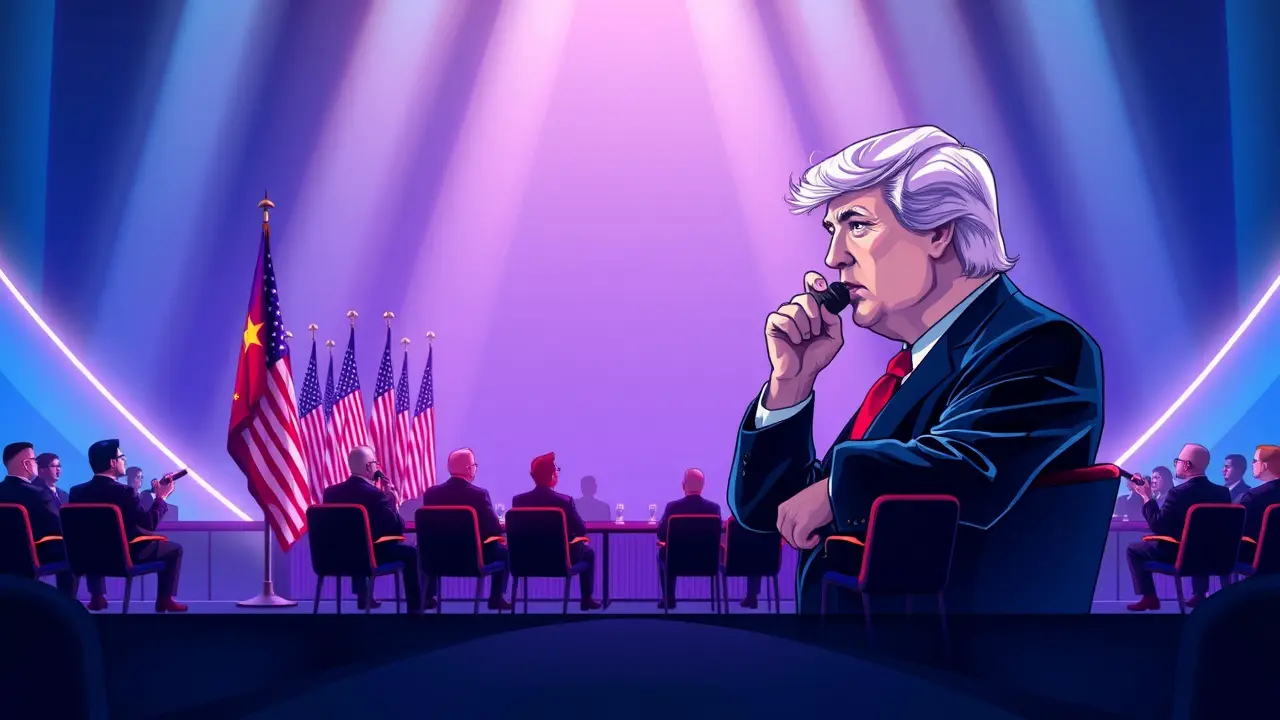US Lawmakers Urge Trump to Attend Indo-Pacific Summits
In a political maneuver that feels ripped straight from a high-stakes campaign war room, a bipartisan coalition of U. S.lawmakers has launched a full-court press, urgently petitioning President Donald Trump to personally headline three critical Indo-Pacific summits this fall. This isn't just a polite request; it's a strategic gambit, a direct counter-offensive against what they perceive as China's relentless and well-funded charm offensive across the region.The lawmakers' letter, released with the calculated timing of a Friday news dump yet carrying the weight of a five-alarm fire, frames the Indo-Pacific not merely as a foreign policy sidebar but as the central arena for 'strategic competition' with Beijing—the main event for American security and economic prosperity in the 21st century. Their warning is stark and unambiguous: a presidential no-show wouldn't just be a missed diplomatic meeting; it would be ceding the field, handing Chinese President Xi Jinping a uncontested platform to further his Belt and Road Initiative and solidify regional alliances, all while America's chair sits conspicuously empty.This is the political equivalent of conceding a key battleground state without even campaigning there. The calculus here is pure realpolitik.While the Trump administration's foreign policy has often been defined by its 'America First' doctrine and a certain transactional skepticism toward multilateral forums, these lawmakers are arguing that optics are policy. In the theater of global diplomacy, presence is power.When the leader of the free world is absent from the podium, his silence is deafening, and that vacuum is instantly filled by competitors who are more than willing to articulate their vision for the region's future—a vision that often excludes American interests. We've seen this movie before.The Obama administration's pivot to Asia was a masterclass in signaling commitment through consistent, high-level engagement. The Trans-Pacific Partnership (TPP), for all its domestic controversy, was designed as an economic bulwark against Chinese influence.While Trump withdrew from the TPP, the underlying geopolitical contest did not vanish; it intensified. Now, with China aggressively negotiating the Regional Comprehensive Economic Partnership (RCEP) and flexing its military muscles in the South China Sea, the summits—likely including the East Asia Summit and ASEAN-related meetings—represent the last, best chance for the U.S. to demonstrate that it remains all-in on the Indo-Pacific.The bipartisan nature of this plea is its most telling feature. This isn't a partisan squabble; it's a rare moment of consensus in a fractured Washington, signaling that concern over China's rise is one of the few issues that can unite Republicans and Democrats.They understand that on the world stage, there is only one President, and his physical presence carries a symbolic heft that no delegation of secretaries or envoys can match. It’s the difference between sending a surrogate to a debate and showing up yourself.The risk of declining this invitation isn't merely a diplomatic snub; it's a potential cascade of real-world consequences. Allies from Japan and Australia to India and Vietnam are watching closely, constantly reassessing their strategic bets.Every vacated seat at the table erodes their confidence in American reliability, pushing them gently but inexorably toward Beijing's orbit. For a president who prizes deal-making and winning, skipping these summits would be the ultimate unforced error, a strategic own-goal that could take decades to recover from.The ball is now in Trump's court. Will he take the stage and command the narrative, or will he cede the spotlight and, with it, a significant measure of American influence in the century's most consequential region? The decision will reverberate far beyond the conference halls, shaping the balance of power for a generation.
JA
Jamie Larson123k2 days ago
wait is this article from a few years ago or something smh feels like we've seen this movie before and it doesn't end well
0
